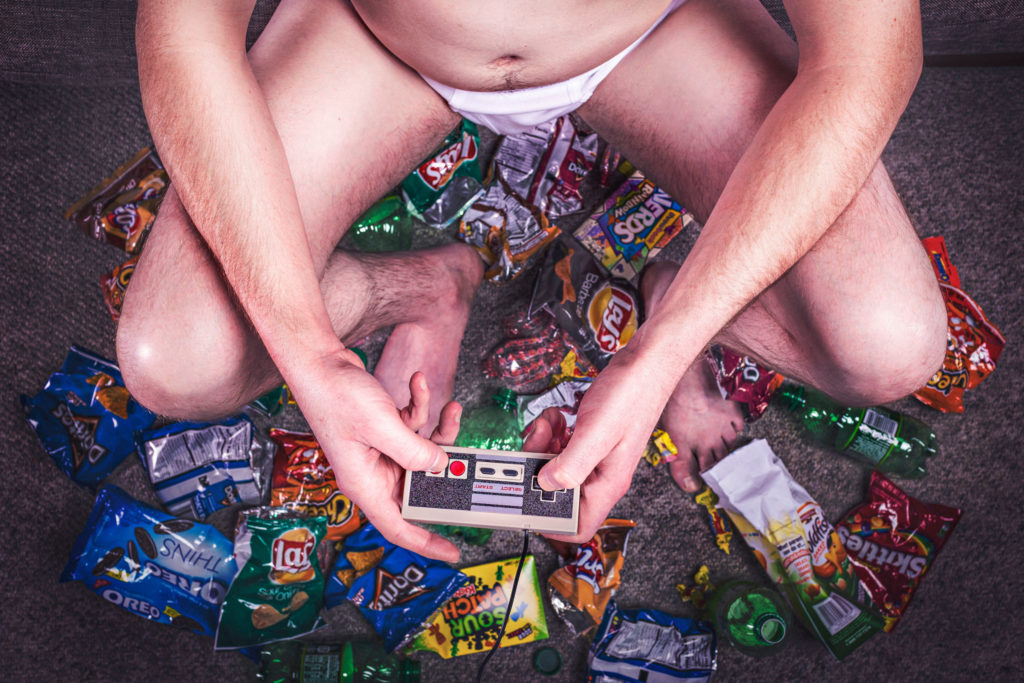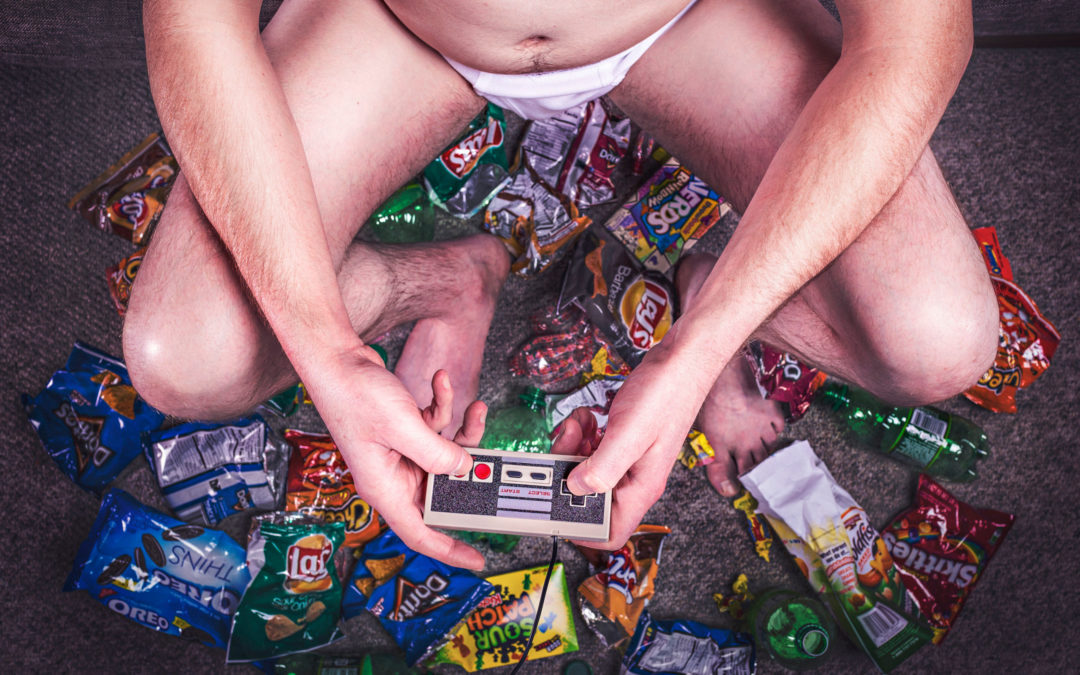
Retro Gamer by Ryan McGuire @ Gratisography
Forced work-from-home setup. Postponed classes. Cancelled events. For the better part of 2020, COVID-19 has messed up with our lives. Most people have been placed in a sink or swim situation and to be quite honest it’s hard trying to cope with this coronavirus crisis.
Somehow, all that pressure needs to be released as we all try to turn things around in our daily routines. Otherwise, we’ll all end up feeling spent, if not dead inside in the middle of a pandemic. And as far as emotional outlets are concerned, the easiest ones to grab are right there in your pantry, fridge, or at a nearby 7-Eleven.
I’m talking about junk food. Big food. Chips. Candies. Salt and sugar bonanza. Snacks with massive unpronounceable ingredients that come in foil packaging. The calorie gravy train. In-home vending machine, anyone?
Admit it, you love junk food. Everybody loves junk food. I do. They’re easy to get. They’re cheap. They’re simply delicious.
Unless you have the dough to pay for all those restaurant food deliveries at these hard times, junk food will be a big part of your grocery runs. No one has a clue as to what will happen in our coronavirus-ridden future, but I fear that right now the biggest issue for people like me is my growing waistline. All thanks to junk food.
Junk Food Consumption – The Big Come Back?
For years, public health authorities have warned us about the harmful effects of junk food consumption. But COVID-19 has thrown healthy eating habits out the window. The pandemic has provided people the perfect opportunity to put junk food back on the menu as many struggle with stress, anxiety, boredom, and sadness. Suddenly, pigging out and overeating is in fashion again.
In the age of social distancing, video calls, and video conferencing, we have grown to miss human interactions and junk food has become one of our go-to medications. Our comfort food. Our nostalgia to a bygone era when we could easily go out and meet people.
It’s not surprising that as people started to stockpile food during the quarantine months, junk food has unintentionally made a comeback. But it is and always has been bad news. And if we allow ourselves to go down the junk food rabbit hole unrestrained, we may well be looking at health problems far worse than the coronavirus.
How to Save Yourself from Junk Food Bingeing
Divert Your Mind
If you want to fight junk food cravings, diversion can be a big help. With all the anxiety that this pandemic has brought about, eating has provided the comfort zone for many people. Nothing wrong with that. But when the urge to eat turns into mindless eating, then it becomes a problem. Instead of grabbing a bag of chips, you can try to do other activities like riding a bike or taking a walk (observe COVID-19 protocols when going outside your home). Or you could read a book or mow the lawn. Anything to distract yourself and take your mind off eating.
Buy Healthy
Avoiding junk food starts in your grocery list. When going for grocery runs, be conscious of the food items you buy. Always make sure that you buy as much of the healthy stuff and less – if not none – of the salty, sugary big food types that you typically see in vendo machines.
And while you’re at it, it’s always a good idea to prepare your own meals. At the very least, you know what you’re putting into your food.
Keep a Well-stocked Pantry
You know what it’s like. You run out of food in your pantry and the next thing you know you’re opening a pack of chips or candies. Or you’re dialing the delivery hotline of your favorite fast food chain to order some greasy fix.
Running out of ingredients or food in your kitchen can push you to binge on junk food. When you run out of good food and you’re hungry, junk food or fast food becomes the inevitable choice. Don’t put yourself in that position. Make it a point to keep a well-stocked pantry.
Don’t Skip Meals
Eat right and try not to starve yourself. When you skip meals or deny yourself food, you’re more likely to overindulge the next time there’s food in front of you. You will most definitely crave for anything, including junk food. It is always a smart and healthier idea to eat at predictable intervals during the day and it does not mean you have to gorge on food during each meal. Small frequent feeding works to keep you energized and sated the whole day, helping you avoid overeating and bingeing on junk food.
Enjoy Junk Food Sensibly
Let’s face it. It’s hard to totally shun junk food you love, especially the ones you grew up with since you were a child. There’s no use feeling deprived and in a pandemic no less. But if you must eat your favorite candy, chips, or fast food, try to do so responsibly.
The idea is to eat in moderation. Instead of finishing the whole pack or bag of your favorite treat, it’s a good idea to prepare just a portion or two. Think of junk food as the occasional reward for a job well done instead of it being a mainstay of your daily diet.
Be Conscious of Emotional Triggers
Overeating is driven by emotions rather than physical hunger. Bingeing on junk food has its emotional triggers. Why do you think big food companies spend billions of dollars for ads? They want us to drool. They know their marketing message gets people to buy their products. The more you’re aware of those emotional triggers, the better chances you have at avoiding them and talking yourself out of your junk food craving.
Conclusion
The COVID-19 pandemic has made life harder for all. Everyone is struggling. It’s easy to fall off the wagon and find comfort in junk food or fast food. It’s okay to enjoy your favorite chips and candies every once in a while, but if they become the staple of your daily diet, you’re setting yourself up for some serious health trouble that could be far worse than COVID-19.
